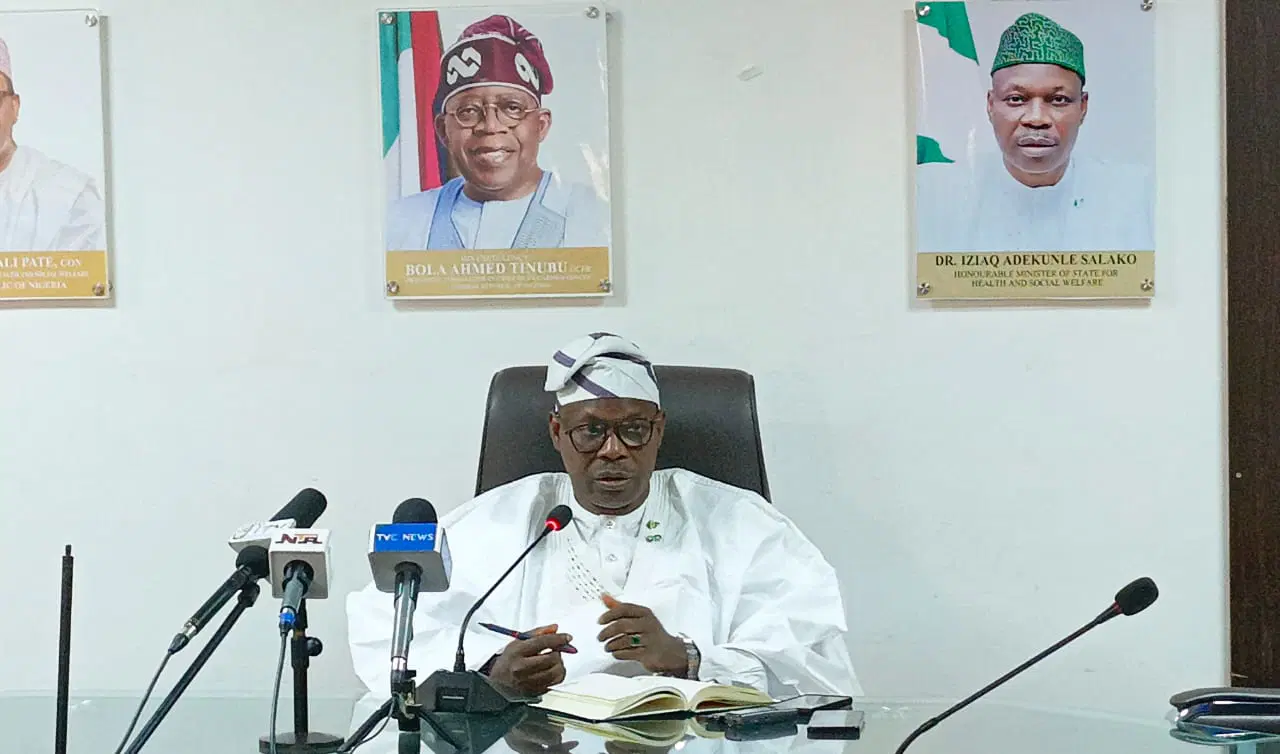For years, Nigeria’s healthcare system has struggled under the weight of an exodus of doctors and nurses seeking better opportunities abroad under the term, ‘Japa Syndrome’. Hospitals have been forced to cut outpatient services, delay elective surgeries, and even shut down wards due to a crippling shortage of medical personnel.
In response to growing concerns, the Minister of State for Health, Dr. Idris Salako, has assured the public of ongoing reforms to curb the brain drain. Speaking during a working visit to the University of Benin Teaching Hospital (UBTH) on Monday, Salako emphasized the federal government’s commitment to improving healthcare infrastructure, enhancing medical professionals’ remuneration, and addressing critical sectoral challenges. He expressed confidence that these efforts would reduce the widespread departure of doctors and nurses seeking better opportunities abroad.
“Within Nigeria’s economic realities, health workers are among the best-paid professionals,” the minister stated. “However, beyond salary increases, we must cultivate a stronger sense of commitment and passion for the profession.”
Data from the Nigeria Medical Association shows that less than half of its registered members are practicing in the country. According to records from the UK’s General Medical Council, at least 1,197 Nigerian doctors relocated to the United Kingdom between May and December 2023. The rising trend continues to weaken the country’s healthcare system, which is already struggling with limited resources and infrastructure deficits.
While acknowledging that salary increments alone would not resolve the crisis, Salako argued that raising doctors’ wages without addressing broader economic factors could lead to similar demands from other professional sectors, such as education. Instead, he called for a renewed sense of patriotism among medical workers, urging them to consider the long-term benefits of staying in Nigeria.
“East or West, home is best. No matter where you go outside your country, you remain a second-class citizen,” he said, urging healthcare professionals to invest their skills in rebuilding the nation’s health sector.
The minister also addressed the persistent power supply challenges faced by tertiary hospitals, commending UBTH for its innovative approach to managing the issue. He assured the hospital’s leadership that the federal government is prioritizing increased funding for public hospitals to enhance service delivery and working conditions.
“Health is the essence of living, and adequate funding is key to addressing the sector’s challenges,” Salako affirmed.
Despite these assurances, healthcare professionals at UBTH painted a stark picture of the staffing crisis. The hospital’s Chief Medical Director, Prof. Darlington Obaseki, disclosed that the facility is struggling to meet patient needs due to a shortage of medical personnel.
“We currently have more than 500 patients but only 750 nurses working across three shifts,” Obaseki explained. “This is barely sufficient to cover the clinics, theatres, and inpatient care. We also have about 250 consultants and fewer than 300 resident doctors.”
He urged the government to urgently address the staffing shortages to prevent further strain on Nigeria’s healthcare system.
Salako acknowledged the severity of the problem, stating that the “japa” phenomenon is an economic issue that requires a multi-sectoral approach beyond the healthcare system. However, he maintained that government initiatives, particularly those focused on capacity building and healthcare sector investments, would gradually reverse the trend. Recently, iNaijanow shared a post on the government’s commitment to invest in the local production of HIV test kits.
The consequences of the ongoing exodus are severe. With fewer doctors available, the remaining workforce is overburdened, increasing the risk of medical errors and burnout. Patients wait longer for treatment, and some never receive the care they need. In some cases, critically ill individuals are referred to private hospitals, where fees are far beyond their financial means.
Until these deeper issues are addressed, the question remains: Will the minister’s assurance hold, or will Nigeria’s healthcare system continue to lose its best and brightest to the global job market?
















